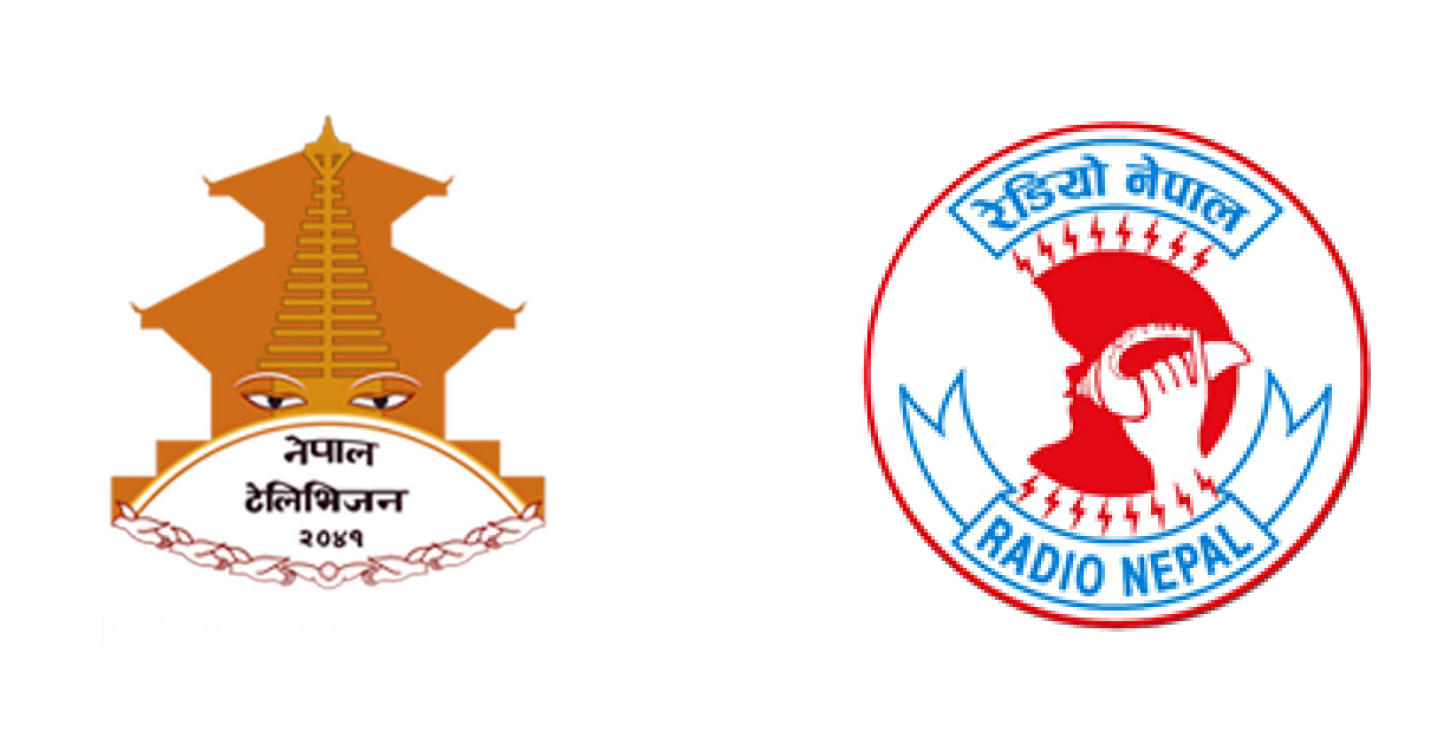Nepal’s public broadcasting bill causes independence concerns

A new Public Service Broadcasting bill has raised serious concerns among journalists and lawmakers about the potential for government control over a new public media body.
A new bill for public service broadcasting (PSB) in Nepal was registered earlier this month. It envisions the merging of state-owned broadcasters Radio Nepal and Nepal Television under a single public media entity that will supposedly be editorially independent and hold parliament to account.
Proposed by Nepal’s government in 2018, the Public Service Broadcasting Bill was designed to create an autonomous PSB body that would broadcast content to inform, educate and entertain Nepali citizens. The introduction of an Ombudsman Committee was also suggested.
However, an appetite for the merger existed long before then. Such recommendations to transform the two entities into public broadcasters, coupled with wider protections for media freedom and independence, were suggested by the High-Level Media Commission in 2006.
But some of the same actors that participated in the 2006 Media Commission are now fearful that the new bill will allow the government to exercise control over the new public media body. This is largely due to proposals that members of a Public Service Broadcasting Council would be appointed by the government and that a minister would be the Council’s Chairperson. Some, such as Tarath Dahal, CEO of human rights NGO Freedom Forum, have criticised the bill for neither reflecting international standards of public service media worldwide nor adhering to its core principles, including editorial and financial independence, and reflecting the diversity of its audience. In a press release, the Federation of Nepali Journalists also emphasised these concerns:
“Although the name of public service broadcasting has been included in the present bill, its definition, method of formation, purpose, structure, appointment process, representation and work-related rights have not been able to accept the recognition of public service broadcasting. The provisions in it seem to be an attempt to maintain more government control and make the government-owned Radio Nepal and Nepal Television more loyal to the government.”
Wider press freedom concerns
The new bill comes at a time when independent media are experiencing a barrage of press freedom violations in Nepal.
Journalists across the country have faced an array of threats and political pressure for critical reporting of the government’s COVID-19 response. Some trusted media outlets had to suspend their print editions during the lockdown and, as RSF reports: “On social distancing grounds, media access to party and health ministry meetings is being restricted and requires prior permission”. Such a move poses significant challenges for news media trying to disseminate vital information during a national health emergency.
Read more: Nepal: Coronavirus and the media (EJO)
But this is by new means a new phenomenon. Journalists were being denied or given restricted access to press briefings before COVID-19 took its toll. Despite a constitutional obligation to guarantee total press freedom, which Prime Minister K.P. Sharma Oli supported while in opposition, other draconian bills introduced under his administration – such as the Advertisement Regulation Bill, the IT Bill and the Nepal Media Council Bill – stifle freedom of speech and punish voices that are deemed critical of the government or a threat to national unity.
Nepal currently ranks 112/180 in RSF’s 2020 Press Freedom Index, down six places from 2019.
Read more: Proposed laws in Nepal would stifle press freedom (IPI)
Other developments
Press freedom and human rights advocates have also questioned a decision made by cable operators to temporarily ban Indian news channels in the country “for attacking Nepal’s sovereignty”. The decision came after Zee News broadcast a critical report about Prime Minister Oli’s relationship with the Chinese Ambassador to Nepal, Hou Yanqi. The government disputed the report and praised cable operators for taking the channels, except Indian public broadcaster Doordashan, off-air.
While the ban has mostly been lifted, experts say that it should not be the responsibility of distributors to determine what channels should be distributed or consumed. Binod Bhattarai, a media educator and researcher, explained to the Kathmandu Post that “Government can condemn misleading and baseless reports and take the issue up with the concerned parties, but shutting the media—and controlling its content—is against the values of an open society and freedom of expression.”
He added, “They cannot do moral policing…What to watch and what not to watch is people’s discretion and allowing the content suppliers to decide on behalf of the people is not good for a democratic society.”
Header Image: Nepal Television and Radio Nepal logos
